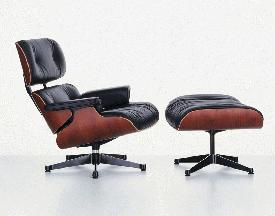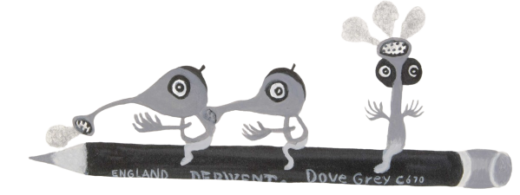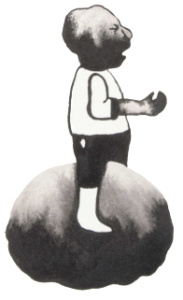A discussion of the judgment of the Court of Appeal of The Hague, 20 March 2008, Vitra Collection AG et al. versus Classic Design et al.
The Dispute
Vitra holds the copyright to the Lounge Chair, the Ottoman and the Aluminium Chair that were designed and made public in 1956 by Ray and Charles Eames. Besides, Vitra is holder of the international word mark EAMES and of two international figurative marks similar to the appearance of the Lounge Chair and the Alu Chair, for the Benelux and Germany among other countries.

Classic Design et al. offers copies of the aforesaid Eames furniture via its websites, which are also accessible from the Benelux and Germany. Vitra was of the view that Classic Design et al. were infringing copyrights and trademark rights on their internet pages, or were acting unlawfully towards Vitra, and claimed (among other things) a cross-border injunction against infringement, principally for Germany and the Benelux, alternatively for the Benelux and as a second alternative for the Netherlands.
The court in preliminary relief proceedings declined jurisdiction as far as the claimed injunctions reached beyond the Benelux territory (with regard to the alleged trademark infringement) or the Netherlands (with regard to the unlawful behavior). On appeal Vitra has put forward a defense against this decision.
The Adjudication on Appeal
The Declining of Jurisdiction
The Court of Appeal considered that pursuant to common international law of competence the Dutch court is competent to take cognizance of a claim concerning the infringement of an intellectual property right acquired under foreign law. The court may pronounce an injunction prohibiting acts abroad if this is claimed. The same is true in preliminary relief proceedings and irrespective of the ground on which the Dutch court has based its international competence.
This does not alter the fact that if the competence of the Dutch court is based on Article 5.3 of the EEX Regulation (the place where the harmful event has occurred), the Court is only competent to take cognizance of the disputes concerning the damage that was incurred in the Netherlands.
Offering Goods in the Benelux and/or the Netherlands
Vitra further defended itself against the opinion of the court in preliminary relief proceedings that infringing goods are only offered on a website in the Benelux or anyway in the Netherlands if this website is also obviously aimed in word and content at the public of the Benelux. Vitra took the position that this condition from 1964 goes too far.
The Court of Appeal considered that this criterion was established at some time under the Trademarks Act of 1893 and long before the Internet existed. Therefore the criterion is not applicable per se to the adjudication of the question whether the offering of goods on the Internet must be regarded as unlawful in a specific country. The Court of Appeal considered the Ladbrokes judgment of the Dutch Supreme Court from 2005 relevant to its decision. That judgment was about the question whether a provider of games of chance with its registered office in the United Kingdom, by offering without a license the possibility of playing games of chance through the Internet, via a website aimed at the Netherlands among other countries, was acting contrary to the Dutch Betting and Gaming Act. In that case the Supreme Court considered it relevant that the website, as appeared from its layout, was also aimed at potential participants in the Netherlands.
Considering this, the Court of Appeal ruled that Classic Design et al. act unlawfully if they offer infringing products via websites aimed at – as appears from their layout – the Benelux and/or the Netherlands. If this is the case will depend on the circumstances, such as the top level domain of the internet addresses, the language used on the websites, or other references on the websites to a specific country or countries. Because it was possible on the website of Classic Design et al. to consult Dutch and Belgian parts, each written in the Dutch and French language, respectively, the Court of Appeal held that the websites are aimed at the Netherlands and Belgium.
Infringement of Copyright
It is not a simple question to answer whether there was also infringement because of the age of the design, the American scope of protection and the principle of reciprocity set out in the Berne Convention.
Article 2.7 of the Berne Convention provides a special regime for works of applied art.
This article provides that works of applied art protected solely as designs and models shall always enjoy some sort of protection in other countries. On account of this provision Vitra can lay claim to copyright protection of the furniture if it stands the test of copyright, since there is no protection in the Netherlands under designs and models law.
The Court of Appeal is of the view that the furniture has an original character of its own and unmistakably bear the stamp of the authors. This causes the chairs to be actually copyright-protected works. By displaying exact copies of the chairs, Classic Design et al. commit an infringing act. Classic Design et al. also commit trademark infringement by using signs on its internet pages that are identical to the word marks and figurative marks registered by Vitra.
Conclusion
The main conclusion from the judgment is that the Court of Appeal, when adjudicating a cross-border injunction, asks whether infringing products are offered via a website in a specific geographical area.

